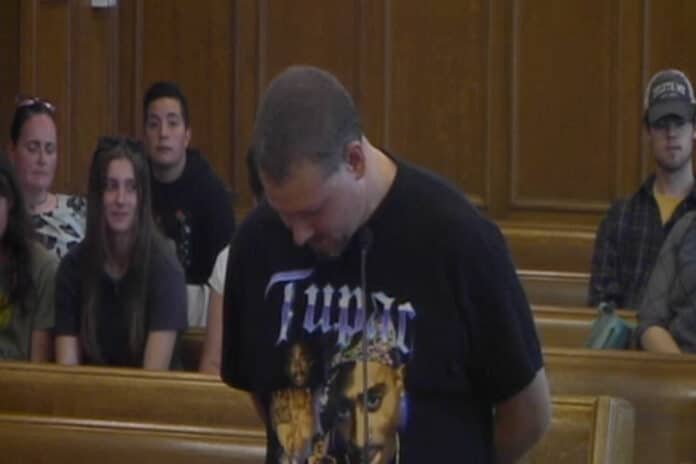
If it feels like a Pandora’s box of sorts has opened as communities across the state prepare for the Aug. 1 enactment of recreational cannabis legalization, that’s because it has.
The latest issue cities are taking on with regard to imminent legalization of marijuana use is where the substance can and cannot be smoked by those age 21 and older. Or more accurately, where city officials think individuals should be prohibited from lighting up a joint. And what their community members are willing to tolerate.
On Monday, the Duluth City Council took more than an hour of public testimony from concerned citizens as the state’s fifth largest municipality considers whether it should prohibit people from smoking marijuana in its public parks. The cities of Lakeville, St. Cloud, West St. Paul, Alexandria, Inver Grove Heights, Apple Valley, Prior Lake, and Detroit Lakes are considering or have approved similar ordinances. Many residents who have been advocating for an end to marijuana prohibition look at such ordinances as an attempt to continue criminalizing a now legal substance.
“I guess I just don’t understand how after all these decades of prohibition, and we are finally going to end it, some want to keep it going,” said Duluth resident Michael Paul Odomski, who was one of more than a dozen people who testified in opposition to the proposed ordinance banning smoking weed in public parks at the July 24 city council meeting.
Duluth was one of first cities to ban smoking tobacco in parks
Two proposed ordinances set for an Aug. 14 vote would regulate the smoking of cannabinoid substances in public areas across the city. The first would clarify that smoking cannabinoid is prohibited to the same extent as tobacco in certain city locations. The second would specifically ban smoking any form of cannabinoid in a public park. In 2012 Duluth became one of the first cities in Minnesota to ban smoking of tobacco in its parks. And council members who support the addition of cannabis to that ordinance said it is a logical extension that protects the public health and welfare of people from second-hand smoke.
“The idea that all of our parks would be smoke free — it doesn’t matter what the smoke is — absolutely resonates with me,” said Duluth City Councilmember Arik Forsman.
But some city council members were concerned that the $300 petty misdemeanor fine for individuals cited for violating the ordinance would disproportionately punish residents who don’t own their own homes and may not be allowed to smoke in apartment buildings.
“Yes, I am all for supporting [measures] that make sure our public parks stay safe, but we also need to have this discussion on where is the space for residents to safely consume if they are at the margins,” said City Councilmember Azrin Awal, who has a background in public health and worked for a non-profit supporting homeless youth. She said she would be more supportive of an ordinance if it had crafted language providing some designated spaces inside public parks where smoking would be allowed.
“Sidewalks and alleyways are not a safe space to consume substances that are for recreational use,” Awal said.
Others fear that the language of the ordinance, which would provide police officers discretion for enforcement (i.e. issuing a citation), would allow for selective policing, which they say ultimately leads to discrimination.
Duluth resident Carl Sack asked that the city consider lowering the standard $300 citation for smoking in a public park to ensure that the “effect is not that we are targeting our black and brown and poor residents who are over-policed.”
Balancing public health and welfare with new right to consume marijuana
The city of Lakeville is also considering prohibiting the use of cannabis in public spaces. On Monday, the Lakeville City Council held an informal work session where it discussed drafting of an ordinance that would make it a petty misdemeanor for anyone to consume marijuana in public spaces.
Lakeville Mayor Luke Hellier told Fox 9 in an interview this week that Lakeville and other cities across the state are scrambling to adopt ordinances that take families and businesses in the public square into account when it comes to where it is acceptable for people to smoke marijuana in public.
“The last thing I want is a nuisance of marijuana smoke or vaping in the downtown (Lakeville business district) that could prevent people from wanting to come to these businesses,” Hellier told Fox 9 in an interview Monday. Lakeville is set to vote on its proposed ordinance at its next regular city council meeting in August.
After Gov. Tim Walz signed HF100 in May — which contained a sweeping list of new laws related to decriminalizing recreational cannabis — cities and counties have been working to understand what they can and can’t regulate when it comes to the possession, consumption and sale of cannabis.
While many other cities are expected to be tackling a plethora of cannabis legalization-related issues in the coming weeks and months, the League of Minnesota Cities has debuted an Adult-Use Cannabis FAQ webpage for municipalities that are considering what kind of regulations to impose in this new recreational cannabis landscape.
Hank Long
Hank Long is a journalism and communications professional whose writing career includes coverage of the Minnesota legislature, city and county governments and the commercial real estate industry. Hank received his undergraduate degree at the University of Minnesota, where he studied journalism, and his law degree at the University of St. Thomas. The Minnesota native lives in the Twin Cities with his wife and four children. His dream is to be around when the Vikings win the Super Bowl.
















